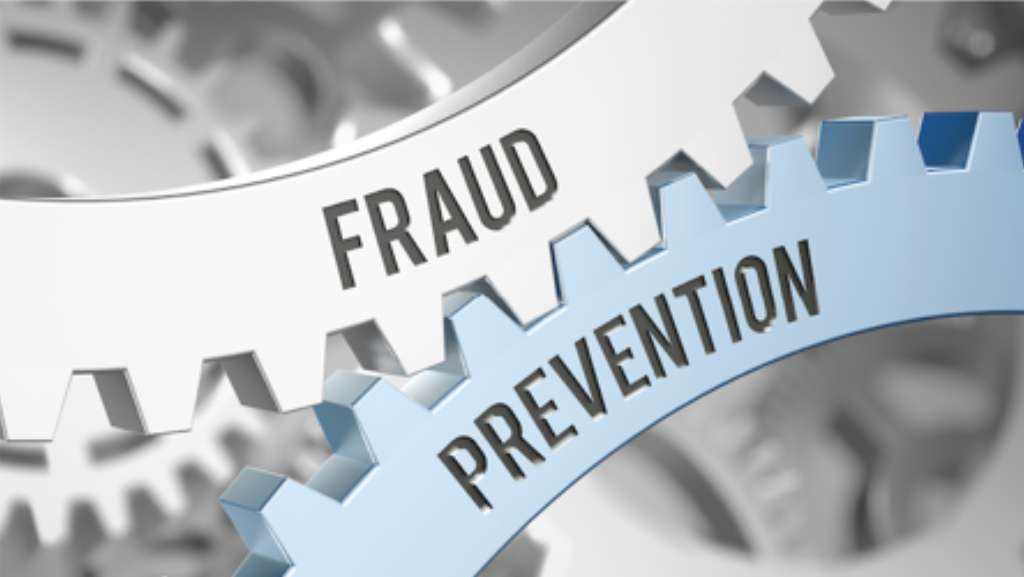Understanding Healthcare Fraud: An Introduction
Health care fraud isn’t a crime with no victims. It impacts everyone—people and businesses alike—and results in tens of billions of dollars in losses every year. It can boost health insurance premiums, unnecessarily expose you to medical procedures, and drive up taxes.
Medical professionals, patients, and others who purposefully mislead the healthcare system to obtain illegal benefits or payments can all be guilty of healthcare fraud.
For both public and private insurance programs, the FBI is the primary agency responsible for investigating health care fraud.
The FBI investigates these crimes in collaboration with the following organizations:
- Federal, state, and local agencies
- Healthcare Fraud Prevention Partnership
- Various insurance organizations, including the National Health Care Anti-Fraud Association, the National Insurance Crime Bureau, and insurance investigative units
Spotting the Red Flags: Signs of Healthcare Fraud

source: pinterest.com
Unexplained Billing Discrepancies: Frequent billing errors, duplicate charges, or charges for services not received can indicate potential fraud.
Unsolicited Healthcare Offers: Be cautious of unsolicited offers for free medical services or screenings, as they could be a ploy to obtain personal information.
Pressure to Provide Personal Information: If healthcare providers or representatives push you to disclose sensitive data, such as your Social Security number, be wary of potential identity theft schemes.
Unexpected Changes to Medical Records: Discovering alterations or additions to your medical records without any valid explanation is a significant red flag for fraudulent activities.
Out-of-Network Providers: Beware of healthcare providers who claim to be in-network with your insurance but are not. Out-of-network services can lead to inflated charges or denial of coverage.
Free Services with Insurance Information: Avoid giving your insurance details for allegedly “free” services, as this information could be misused for fraudulent billing.
Overly Aggressive Marketing Tactics: High-pressure sales pitches or scare tactics used by healthcare providers may indicate fraudulent intentions.
Unnecessary Medical Treatments: Watch out for healthcare providers who recommend unnecessary tests, procedures, or treatments that seem excessive or unrelated to your condition.
Phantom or Fake Clinics: Be cautious of suspicious healthcare facilities with minimal or no legitimate presence, as they could be fronts for fraudulent operations.
Paying in Cash Only: Providers who insist on cash payments for services covered by insurance should raise suspicion, as they may be attempting to conceal fraudulent billing.
False Credential Claims: Verify the credentials of healthcare professionals and facilities to ensure they are legitimate and qualified to provide medical services.
Unexpected Premium Increases: If you notice significant and unexplained premium increases in your health insurance policy, it might be a sign of fraudulent activity within the insurance company.
Recognizing these red flags and staying vigilant can help you protect yourself from falling victim to healthcare fraud, safeguarding both your health and finances. If you suspect fraudulent activity, report it to the appropriate authorities immediately.
Healthcare Fraud And Abuse Laws And Regulations

source: pinterest.com
False Claims Act: It is against the law to knowingly submit false or fraudulent claims to Medicare or Medicaid, and fraud-related intent is not necessary. Civil FCA lets a private individual submit a lawsuit under the name of the United States. Criminal FCA entails imprisonment and criminal charges for filing fake claims.
Anti-Kickback Statute: This criminal statute forbids the knowing and intentional payment of “remuneration” to induce or reward patient referrals or the creation of business involving any good or service covered by any Federal health care program, including medicines, supplies, and medical services for Medicare or Medicaid patients.
Physician Self-Referral Law: This law, also referred to as the Stark law, forbids doctors from referring patients to obtain “designated health services” that are covered by Medicare or Medicaid from organizations with which they or a member of their immediate family has a financial relationship unless there is an exception.
Protecting Personal Information: Safeguarding Your Health Records

source: pinterest.com
Understanding the Value of Health Records: Recognize the importance of your health records and the sensitive information they contain, including medical history, diagnoses, treatments, and personal identifiers.
Securing Physical Health Records: Keep physical health records in a secure and locked location, away from unauthorized access. Avoid leaving them in easily accessible places like a car or an unattended bag.
Embracing Digital Security Measures: If using electronic health records (EHRs), employ strong passwords, encryption, and two-factor authentication to protect access to your health information.
Being Cautious with Sharing: Only share your health records with trusted healthcare providers or entities directly involved in your care. Avoid sharing sensitive information through unsecured channels like email or public Wi-Fi networks.
Reviewing Privacy Policies: Understand the privacy practices of your healthcare providers and insurance companies. Read their privacy policies and be aware of how your information may be used and shared.
Limiting Access to Personal Devices: Restrict access to health records on personal devices, and avoid storing sensitive information on devices with weak security measures.
Regularly Updating Software: Keep your devices, especially those containing health records, updated with the latest software and security patches to minimize vulnerabilities.
Using Secure Online Portals: Opt for healthcare providers that offer secure online portals for accessing your health records. Ensure these portals require strong authentication for login.
Shredding Medical Documents: Dispose of physical health records or medical documents properly by shredding them to prevent dumpster diving and identity theft.
Protecting Personal Identifiers: Avoid sharing your Social Security number or other sensitive identifiers unless absolutely necessary and legally required.
Being Wary of Phishing Attempts: Stay vigilant against phishing emails or phone calls that attempt to extract personal health information. Verify the legitimacy of any communication before sharing sensitive data.
Regularly Monitoring Your Health Records: Review your health records regularly to identify any suspicious activity, such as unauthorized access or alterations.
By implementing these proactive measures, you can enhance the security of your health records and reduce the risk of unauthorized access, identity theft, and potential misuse of your personal health information. Remember, protecting your health records is not only crucial for your privacy but also for maintaining your overall well-being and financial security.
Staying Informed: Recognizing Scams and Deceptive Practices

source: pinterest.com
Healthcare Practitioner Fraud
Physicians and other healthcare practitioners conduct healthcare fraud in some of these ways:
- Prescribing pointless drugs that are covered by insurance or supported by healthcare, then reselling them on the black market for more money
- Submitting the same claim more than time
- Making claims for medical services that were never provided (“phantom billing”)
- Giving incorrect data like identities, dates and descriptions of services
- Altering medical records
- Falsely billing a service that isn’t included in the insurance
- Adding pointless treatments, procedures or diagnoses to raise the claim sum
- Employing a commission system among members
- Exempting members from co-pays
Healthcare Customer Fraud
Healthcare fraud can be committed by customers as follows:
- Selling prescription drugs
- Giving out false details while applying for programs or services
- Counterfeiting prescription drugs
- Claiming transportation costs when they were actually spent on non-medical activities
- Filing a claim using someone else’s insurance card
Choosing Reputable Healthcare Providers: Researching Credentials

source: pinterest.com
Verifying Licensing and Certification: Ensure that the healthcare provider is properly licensed and certified to practice in their respective field. You can usually check this information with state licensing boards or relevant professional organizations.
Checking Board Certifications: For specialized medical fields, look for board-certified professionals. Board certifications indicate that the provider has met specific competency standards in their specialty.
Reading Online Reviews and Ratings: Check online platforms and websites that provide reviews and ratings for healthcare providers. Look for patterns of positive feedback and consider any negative comments with caution.
Seeking Referrals and Recommendations: Ask friends, family, or your primary care physician for recommendations. Personal referrals from people you trust can carry significant weight in your decision-making process.
Consulting Healthcare Directories: Utilize reputable healthcare directories that list providers’ credentials, specialties, and patient reviews. These directories often provide valuable insights into a provider’s background.
Reviewing Hospital Affiliations: If your provider is affiliated with a hospital or medical center, research the institution’s reputation and quality of care to gauge the provider’s professional associations.
Checking Malpractice History: Look into the provider’s malpractice history, if available. While an isolated incident may not be cause for concern, patterns of malpractice claims could be a red flag.
Researching Disciplinary Actions: Check if any disciplinary actions have been taken against the provider by state medical boards or other regulatory bodies.
Evaluating Experience and Specialization: Consider the provider’s years of experience and whether they have expertise in treating your specific health condition or concern.
Assessing Communication and Bedside Manner: Positive patient-provider communication is crucial. Evaluate the provider’s ability to listen, explain treatment options, and address your questions and concerns.
Inquiring About Hospital Quality: If you may require hospitalization or surgery, research the quality and safety ratings of hospitals where the provider practices.
Trusting Your Instincts: Pay attention to your instincts and feelings during your interactions with the provider. If something doesn’t feel right, consider seeking a second opinion or exploring other options.
By thoroughly researching and verifying the credentials of healthcare providers, you can make informed decisions and choose reputable professionals who are well-equipped to provide high-quality care for your health needs. Remember that investing time and effort in this process is an essential step in safeguarding your health and well-being.
Navigating Insurance Claims: Tips for Preventing Billing Fraud

source: pinterest.com
Dealing with insurance claims can be a complex process, and unfortunately, it also opens the door to potential billing fraud. Fraudulent billing practices can lead to financial losses, increased premiums, and even denial of legitimate claims. To safeguard your finances and ensure fair and accurate billing, consider the following tips for preventing billing fraud while navigating insurance claims:
Review Explanation of Benefits (EOB) Statements: Carefully examine the EOB statements provided by your insurance company after receiving healthcare services. Compare them with the services you actually received to spot any discrepancies or unauthorized charges.
Understand Medical Codes: Familiarize yourself with the common medical billing codes used by healthcare providers. If you notice unfamiliar or irrelevant codes on your insurance claims, it could be a sign of fraudulent billing.
Keep Detailed Records: Maintain thorough records of your medical appointments, treatments, and procedures. Having this information readily available will help you cross-reference it with your insurance statements and identify any discrepancies.
Verify Provider Information: Ensure that the healthcare provider’s name, address, and contact details on the insurance claim match those of the actual facility or practitioner you visited.
Avoid Double Billing: If you pay for services out of pocket, ensure that your healthcare provider does not later submit a claim to your insurance company for the same service. This is known as double billing and is a form of fraudulent activity.
Be Cautious with Unnecessary Tests or Services: Question healthcare providers who recommend excessive or unnecessary tests or treatments. Verify the medical necessity of each service before proceeding.
Check for Upcoding: Upcoding occurs when a provider bills for a more expensive procedure or service than what was actually performed. Verify that the billed codes accurately reflect the services received.
Question Billing for Unperformed Services: If you notice charges for services you did not receive, immediately reach out to your healthcare provider and insurance company to address the issue.
Seek Itemized Bills: Request itemized bills from your healthcare providers. Itemized bills break down the costs of each service, making it easier to identify any inaccuracies or inflated charges.
Report Suspicious Activity: If you suspect billing fraud, report it to your insurance company and the appropriate authorities immediately. The timely reporting of fraud can aid in its prevention.
Be Wary of “Free” Offers: Avoid accepting “free” medical services or devices in exchange for providing your insurance information. These offers could lead to fraudulent billing or identity theft.
Educate Yourself and Others: Stay informed about common billing fraud schemes and share this knowledge with family and friends. By increasing awareness, you contribute to the collective effort in preventing billing fraud.
Taking these preventive measures will empower you to navigate insurance claims more confidently and protect yourself from falling victim to billing fraud. Remember that being an informed and vigilant consumer is key to safeguarding your finances and ensuring the accuracy and legitimacy of your insurance claims.
Conclusion: Taking Charge of Your Health and Finances

source: pinterest.com
Preventing healthcare fraud and safeguarding your health records are essential steps in securing your well-being and financial stability. Throughout this journey, you have learned to identify red flags that may signal potential fraud, protect your personal information, and choose reputable healthcare providers. By taking charge of these aspects, you empower yourself to make informed decisions that can significantly impact your health and finances positively.
Healthcare fraud remains a persistent threat, affecting countless individuals and the healthcare industry as a whole. By being vigilant and knowledgeable, you have the power to recognize and report fraudulent activities, protecting not only yourself but also others from falling victim to these deceitful practices.
Safeguarding your health records is equally crucial. With the increasing digitization of healthcare data, the risk of unauthorized access and identity theft is higher than ever. By adopting secure practices and staying informed about privacy regulations, you can better shield your sensitive information from prying eyes and potential misuse.
Researching the credentials of healthcare providers is a critical step in ensuring you receive the best possible care. With a comprehensive evaluation process, you can confidently choose reputable professionals who possess the necessary qualifications and expertise to address your health concerns effectively.
In conclusion, taking charge of your health and finances requires proactive efforts and a commitment to staying informed. By implementing the strategies discussed in this article at Live Enhanced, you equip yourself with the knowledge and tools to navigate the healthcare landscape with confidence. Remember that your health is your most valuable asset, and protecting it also means safeguarding your financial well-being. Stay vigilant, stay informed, and empower yourself to make the best choices for a healthier and more secure future.



